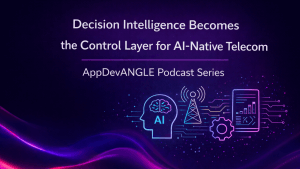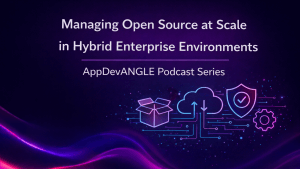The rapid growth of generative AI (Gen AI) is reshaping the demands of the IT infrastructure and requiring new technology purchases. Organizations must be able to scale these environments to keep pace with GenAI’s evolving workloads and ensure robust support for AI-driven innovation.
Gen AI places new demands on computing, storage, and network infrastructure performance. The complexity and scale of Gen AI workloads, from training, inference, advanced data analytics and autonomous systems to intelligent chatbots, require a significant leap in infrastructure capabilities. For example, traditional enterprise data center networks are often inadequate to handle the intense pressure exerted by these advanced AI workloads.
Unlike traditional data center network environments which experience gradual growth, Gen AI networks require immediate and substantial upgrades. These networks now feature diverse components such as back-end and GPU connectivity buses, necessitating a dramatic increase in bandwidth. For instance, the demand for 400 gigabit (Gb) and emerging 800 Gb solutions represents a shift from incremental upgrades to a need for high-capacity connectivity across the entire network.
Gen AI and IT Infrastructure: Exploring the Impact on the Network — watch the full conversation here:
Evolving Network Technology
The advancements in network technology are crucial to supporting GenAI’s bandwidth and performance needs. AI networks demand lossless performance with high-speed connectivity, which is supported by enhancements such as adaptive routing, dynamic load balancing, and cut-through switching. These advancements ensure reliable and efficient AI operations. An example of network infrastructure for Gen AI back-end networks would be the Dell Technologies’ Z9864F switch, which offers 64 ports of 800 Gb connectivity, demonstrating the high-end capabilities needed for next-generation AI workloads.
Ethernet vs. InfiniBand
An important aspect of any back-end GenAI network is the choice between Ethernet and InfiniBand technologies. Despite the fact that InfiniBand’s has performance advantages and is often bundled with Gen AI infrastructure solutions, Ethernet remains preferred by most enterprises given its widespread adoption and existing skill sets. Dell technology remains committed to Ethernet, and is actively involved in the Ultra Ethernet Consortium, driving the development of Ethernet innovations and performance to meet the demands of emerging AI workloads.
Dell’s Ethernet solutions include high-density 400 Gb and 800 Gb platforms, which are essential for processing data-intensive AI workflows efficiently. Dell is also enhancing its network enterprise cards and orchestration tools, such as SmartFabric Manager, to facilitate infrastructure management and scaling for GenAI environments. This includes integrating with technologies like Ansible and partnering with solutions like BeyondEdge and Augtera for comprehensive infrastructure management.
SONiC and Its Role in Gen AI
Dell has been a proponent of SONiC (Software for Open Networking in the Cloud), an open-source network operating system developed by Microsoft. SONiC’s adoption is growing in enterprise data centers, and its role in GenAI backend environments is becoming increasingly significant. Dell’s contributions to SONiC include enhancing features like RoCE v2 support, priority flow control, and advanced traffic management capabilities. These enhancements address the specific needs of GenAI workloads by optimizing load balancing, reducing latency, and improving overall network efficiency.
Dell’s active participation in the SONiC project and contributions to its development underscore its commitment to providing robust and enterprise-ready networking solutions. The company’s in-house deployment of SONiC across its IT ecosystem further validates its effectiveness in supporting both AI and non-AI applications.
Accelerating Gen AI Adoption
One of the key challenges organizations face is the lack of familiarity with GenAI environments. Dell addresses this by offering a range of resources to support the adoption of GenAI. This includes validated designs, pre-tested solutions, and professional services for strategy, implementation, and management. Dell’s extensive experience in deploying AI at scale helps organizations navigate the complexities of AI integration and scaling.
Dell’s website, www.dell.com/ai, provides access to these resources, offering guidance on AI deployment and optimization. The company’s approach ensures that enterprises have the support needed to manage and scale their AI initiatives effectively.
Gen AI Networks Require New Infrastructure
Gen AI is significantly impacting the IT infrastructure, specifically the network infrastructure that supports those Gen AI workloads. Enterprises need to evaluate and purchase comprehensive solutions that best fit their needs and existing skill sets. Dell Technologies is focused on delivering a complete “AI Factory” that addresses the specific needs of GenAI environments including high-capacity Ethernet, enhanced SONiC, and comprehensive support resources.
For more information on Dell Technologies’ network solutions for AI, visit www.dell.com/ai
See more of my coverage here:



